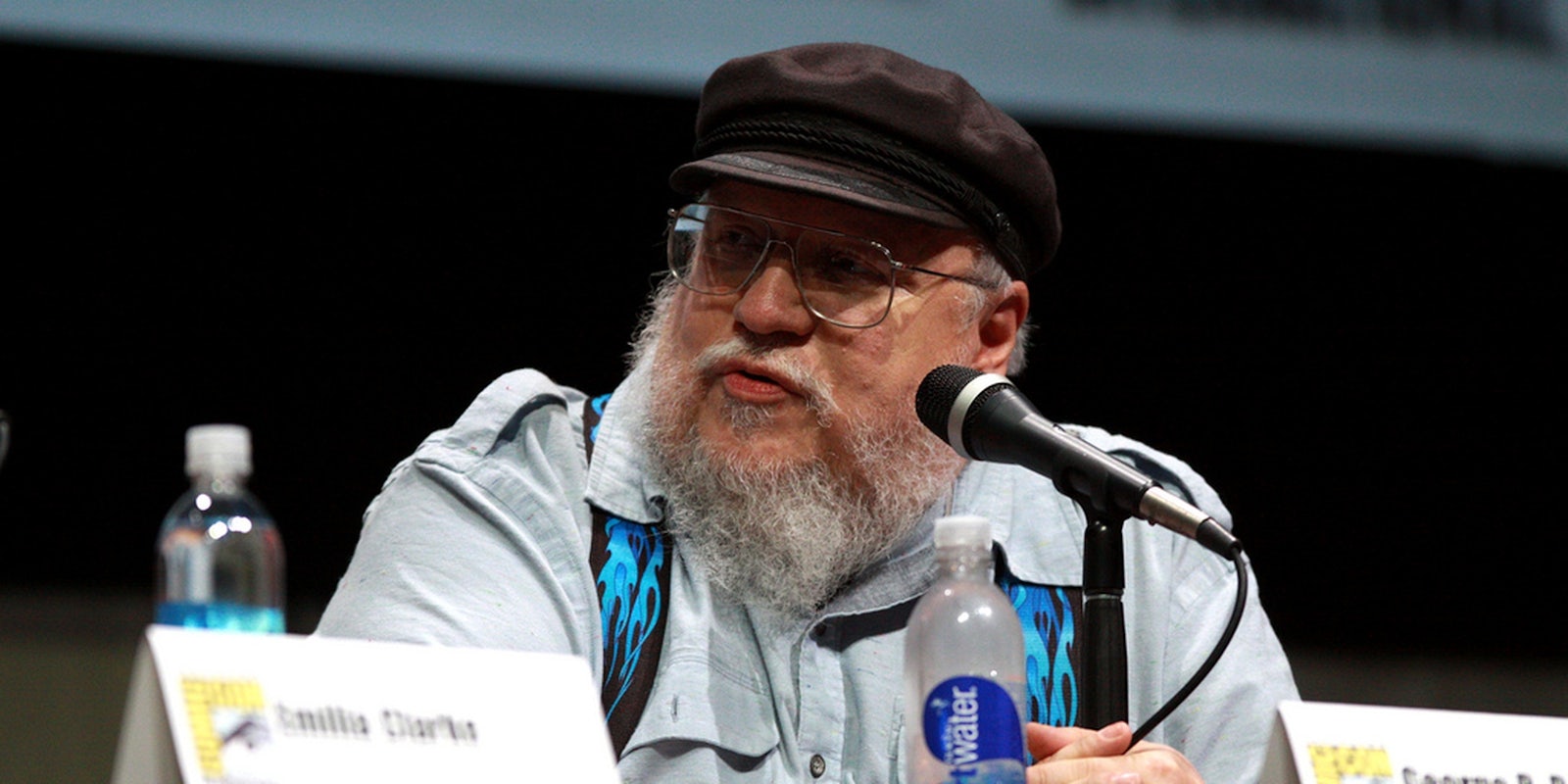(Spoiler alert: This article discusses plot points from already-aired episodes of Game of Thrones Season 4.)
Nobody watches Game of Thrones expecting a lighthearted family drama. Not after four seasons of incest, beheadings, and sexposition, anyway. So when this week’s episode included a scene where Jaime Lannister rapes his sister Cersei, the complaints from viewers weren’t necessarily because a rape scene was included in the first place, but why.
In the original novel, Cersei and Jaime have consensual sex beside the corpse of their son Joffrey. Not the cheeriest of family gatherings (although it does score a Game of Thrones trifecta of sex, death, and incest), but very different in tone from the scene we saw on the TV show. There’s no obvious explanation for why it was changed from consensual sex to rape, particularly when the show has already faced criticism for depicting its female characters in more misogynist scenarios than were found in the books.
Author George R.R. Martin does contribute to the making of the HBO show, but he’s not actually in charge of how his story is rewritten to fit into a TV narrative. Speaking in the comments section of his Livejournal blog, it seems like he may not be entirely happy with the way this particular scene was adapted from the original.
First of all, there’s the issue of the “butterfly effect.” The order of various events was altered to adapt the books for TV, meaning that the circumstances surrounding the Jaime/Cersei scene are different. In the books they had been separated for months and had only just been reunited, whereas in the TV series, Jaime had already been home for weeks and was frustrated by Cersei’s cold attitude towards him. Martin writes that in the novel, Cersei is overcome by emotion at being reunited with her lover and brother, even if it’s right next to the corpse of their son. “Though the time and place is wildly inappropriate and Cersei is fearful of discovery, she is as hungry for him as he is for her.”
“If the show had retained some of Cersei’s dialogue from the books,” Martin continued, “it might have left a somewhat different impression—but that dialogue was very much shaped by the circumstances of the books, delivered by a woman who is seeing her lover again for the first time after a long while apart during which she feared he was dead. I am not sure it would have worked with the new timeline.
That’s really all I can say on this issue. The scene was always intended to be disturbing… but I do regret if it has disturbed people for the wrong reasons.”
Martin’s comments don’t amount to outright criticism, but the “butterfly effect” certainly doesn’t feel like a full explanation for why HBO’s Game of Thrones changed a sex scene to a rape scene. The show is famous for its violence, nudity, and adult content, but when scenes like this are written into the story with no obvious explanation, it seems increasingly likely that all that sex and violence is being used for its own sake, rather than to make a narrative point.
In the Washington Post, Alyssa Rosenberg pointed out that even the Game of Thrones production team didn’t seem to agree on what the scene meant. Director Alex Graves claimed that the rape “became consensual” towards the end, while showrunner (and the episode’s co-writer) David Benioff said, “It becomes a really kind of horrifying scene, because you see, obviously, Joffrey’s body right there, and you see that Cersei is resisting this. She’s saying no, and he’s forcing himself on her.”
This is a perfect example of something that George R.R. Martin pointed out on his blog. While his books can tell us what characters are thinking, television does not have this luxury.
Violence against women is an ongoing topic in the way people critique Game of Thrones, both on its own and as an adaptation of Martin’s novels. In a controversial scene which most viewers clearly perceived as rape, having the director say that the sex was consensual is simply not enough. We cannot read the minds of the characters, and as such, we only have what we can see onscreen. The idea that viewers should have somehow interpreted Cersei’s physical resistance as consent is troubling to say the least, and the fact that the writer and director had such differing opinions on the scene’s outcome, even more so.
Photo by Gage Skidmore/Flickr


